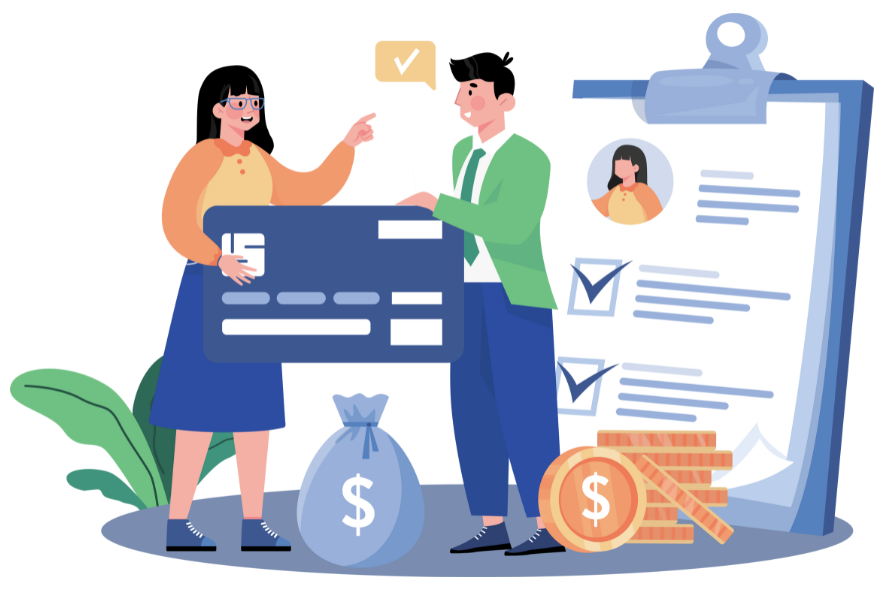- Home
- Home Equity Loan
Best Home Equity Loan in Singapore

What is a Home Equity Loan?
A home equity loan, also known as a mortgage equity withdrawal loan in Singapore, is a type of loan that allows homeowners to borrow money against the equity they have built up in their property. Let's break things down and explain it further.
What is Equity?
To understand how a home equity loan works in Singapore, it's essential to grasp the concept of home equity itself. Simply put, equity is the portion of your property that you truly "own."
Think of it like this: as you make mortgage payments, you're gradually buying back your home from the bank. The more you pay off, the larger your ownership stake becomes. This ownership stake is your equity.
For instance, if your property is currently valued at S$800,000, and your outstanding loan amount is S$350,000, your home equity would be S$450,000. This represents the portion of your home's value that you could potentially access through a home equity loan.
What is a Home Equity Loan
A home equity loan allows homeowners to access funds by borrowing against the value they own in their property. It acts as a second mortgage, where your home serves as security for the loan.
For example, imagine your property in Singapore is worth S$700,000, and you have an outstanding mortgage of S$250,000. This means you own S$450,000 of your home's value – this is your home equity.
A home equity loan lets you borrow a portion of this S$450,000 at a certain interest rate. This provides you with a lump sum of money that can be used for a variety of needs, such as renovating your home, consolidating debt, or pursuing investment opportunities.
A home equity loan is one of the best ways to unlock the value you've built in your home, providing you with financial flexibility without requiring you to sell your property.
Eligibility & Conditions of Home Equity Loan
t's important to understand the criteria and requirements associated with home equity loans in Singapore. Here's a breakdown of the key factors:
Only Private Property Owners
Home equity loans are generally available only to owners of private residential properties in Singapore. This means that HDB flat owners typically do not qualify for this type of loan.
Maximum Tenure of Loan
The maximum loan tenure for a home equity loan is usually capped at 30 years or up to the retirement age of 65, whichever is earlier. This ensures that the loan is fully repaid before the borrower reaches retirement.
Loan-to-Value (LTV) Limit
The Loan-to-Value (LTV) limit for home equity loans is regulated by the Monetary Authority of Singapore (MAS). This limit determines the maximum amount you can borrow against your property's value. Currently, the LTV for home equity loans is capped at 75%. This means you can borrow up to 75% of your property's market value, less any outstanding mortgage.
Total Debt Servicing Ratio (TDSR)
Life throws curveballs! Significant life events can create a need for refinancing. This could include:
CPF Amount
If you have used your CPF savings to purchase your property, this will affect the maximum home equity loan amount you can borrow. The CPF funds used for your property purchase, including down payment and monthly repayments, will reduce the overall loan amount available to you. This is because CPF monies are considered part of your home equity, and lenders will take this into account when assessing your loan application.
Under What Circumstances Do People Take Up A Home Equity Loan in Singapore?
Debt Consolidation
Education Expenses
Medical Expenses
Investments
How to Get Home Equity Loan in Singapore
While the concept of a home equity loan may seem complex, the process of obtaining one in Singapore is actually quite straightforward. It involves a series of clear steps, from assessing your financial needs and eligibility to comparing loan packages, finding low interest rates, and finally receiving the funds. Let's break down each stage:
Decide on the Amount You Need
Carefully determine the amount of money you need to borrow. Consider your financial goals and ensure the loan amount aligns with your needs and repayment capabilities.
Compare and Check Loan Options
Research and compare home equity loan packages from different banks and financial institutions to find the best one. Pay close attention to interest rates, loan tenure, associated fees, and the specific terms and conditions of each loan. A mortgage broker in Singapore can help you navigate this process.
At Mortgage Master, we have access to exclusive home loan rates not available to the general public and can help you find the best fit for your circumstances.
Submit the Loan Application
Gather the necessary documents, which typically include income statements, property valuation reports, and identification documents. With your documents in order, submit your loan application to your chosen bank or financial institution.
Bank Valuation & Wait for Approval
The bank will conduct a valuation of your property to determine its current market value, which will influence the maximum loan amount you can borrow. Following the valuation, the bank will review your application and assess your creditworthiness. This approval process may take some time.
Receive Your Loan Amount
Upon loan approval, the bank will disburse the loan amount to you, usually through a bank transfer. You can then use the funds for your intended purpose.
Compare Home Equity Loan Interest Rates in Singapore
Available Home Loan Packages as of February 2026
Do check if you have keyed in the information correctly
Why Choose Mortgage Master for Your Home Equity Loan
Over
6,500Satisfied Clients
Over
$800millionLoan Value
At Mortgage Master, your best interests are our priority - we're dedicated to finding the perfect home loan solution for you.
What Our Clients Say
Secure The Best Home Equity Loan with Us Today
Consult With Us









